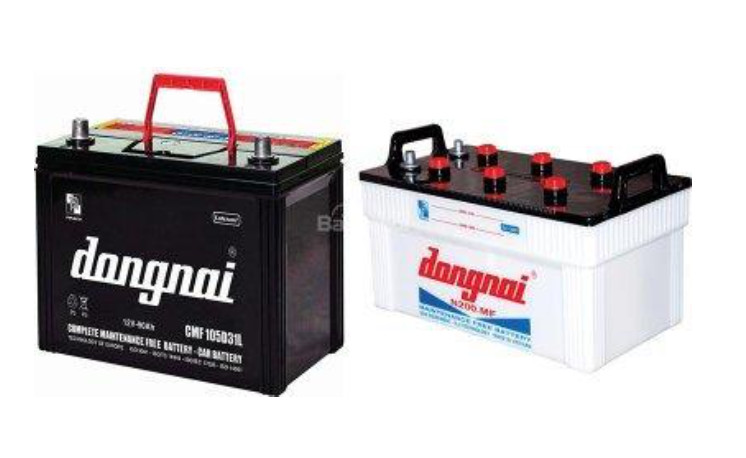Battery type
Table of contents of the article
Battery Cars are divided into two types: water batteries and dry batteries.
Water batteries are a new type of battery that do not contain solution when purchased and dealers will only provide solution when customers buy.
Dry batteries are manufactured as pre-charged batteries and do not have buttons in the battery compartments. Customers who buy it just need to install it on their car and use it, no need to spend time on maintenance or adding or removing fluids.
Currently, most cars use dry batteries, especially large trucks often use water batteries due to the large current generated.
Battery size
Choosing battery size is also very important. Regardless of the capacity of the battery, if it is not the right size for the vehicle, it cannot be used. Therefore, you must choose carefully before buying to get a battery that is suitable for the location and size of the vehicle.
Battery voltage and charge
These are two important parameters that affect the stable operation of the battery:
See your vehicle's owner's manual or refer to your old battery for the correct battery voltage. If the vehicle's electrical system only needs a 12V battery, using a 24V battery will damage the entire system. Battery capacity is calculated in Ampere hours (Ah); The higher this parameter, the more electricity the battery discharges, the more time the generator needs to charge the battery... If this parameter is larger than the charging current value of the battery generator, the battery will not be fully charged when charging, causing it to become corroded. and broken; If the capacity is too small, it can cause overcharging, which can lead to battery explosion.
Inrush current parameters
Next, the parameters measuring starting current (CA - cranking amps) and cold starting current (CCA - cold cranking amps) are also very important for vehicles using diesel engines.
The ignition system needs a strong starting current to provide enough power for the engine to start. The starter in a diesel engine requires most of its energy to compress the air, heat the air, and burn fuel to help the engine start.
The "starting current" parameter is the maximum current that the battery can provide for 30 seconds at a temperature of 0 degrees Celsius and maintains the voltage of each battery cell at least 1.2V. Cold start current parameters are also determined in the same way but at a temperature of -18 degrees and each cell reaches a minimum voltage of 1.5V. The car battery's cold starting current is between 150 and 800 amps.
Battery reserve capacity
Reserve Capacity (RC) is the battery's ability to store electrical energy. The unit is Ah (ampere hour). For example, a car battery with a capacity of 50Ah will be able to produce 10A continuously for 5 hours or 5A continuously for 10 hours. When the discharge current is large, the time is small and vice versa.
Car batteries usually have a storage capacity of 40 to 100Ah. The most popular are 40Ah, 45Ah, 50Ah, 60Ah, 75Ah... Users can choose a battery with appropriate storage capacity depending on the vehicle model and usage needs.
Select battery brand
Consumers often do not know which manufacturer's products to use. Most branded car batteries last longer, so they are better known than unbranded products. However, it will cost more. According to the German Technical Testing Institute (GTÜ), a typical car battery has a lifespan of 4-6 years.








